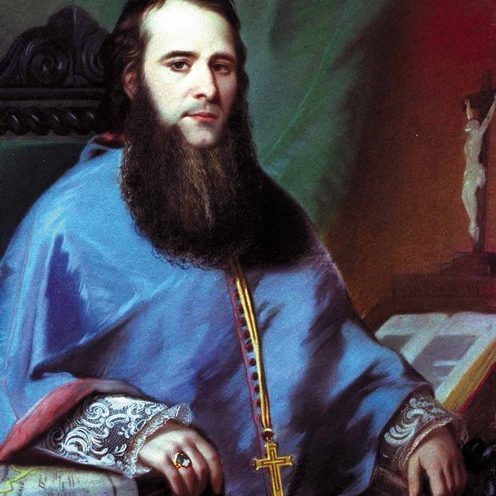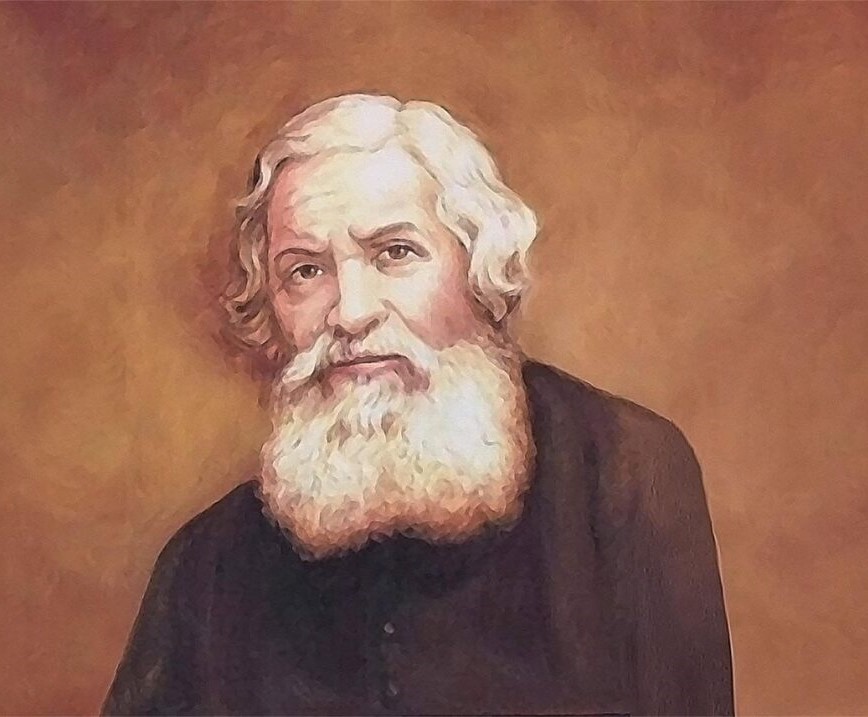His Life
Early Life and Missionary Calling
Ordination and Unsettled Aspirations
A Call to Mission
Despite his comfortable position, Brésillac felt a growing desire for missionary work. His aspirations faced opposition from both his bishop and his father. Unyielding in his determination, he set out on his missionary journey in 1841, joining the Paris Foreign Missionary Society (MEP). He embarked on this path without bidding farewell to his father and was appointed to India nine months later, landing in Pondicherry on July 24, 1842.

Resolute Commitment and Missionary Resolutions
Before departing for India, Brésillac engaged in a retreat and articulated a set of resolutions, emphasizing his wholehearted dedication to being a missionary, spreading the Word of God, and, most notably, contributing to the formation of a native clergy.
Advocating Change and a Native Clergy
Despite these challenges, Brésillac’s pastoral and educational abilities were widely recognized. Within four years of his arrival in India, he was appointed as Pro-Vicar and later Vicar Apostolic of Coimbatore. One of his primary objectives was the establishment of a diocesan seminary. He emphasized the need for a native clergy and hierarchy, enabling other missionaries to focus on primary evangelization.
Founding the Society of African Missions
Despite his resignation, Brésillac’s desire for missionary work persisted. He sought to return to active missionary service and proposed an assignment to the interior of the West Coast of Africa. His proposal was accepted, with Rome requesting him to establish a society of missionaries for this mission. In February 1856, Rome granted him permission to create the Society of African Missions.
Legacy and Challenges in West Africa
Brésillac’s mission took him to West Africa, where he arrived in Freetown, Sierra Leone, on May 14, 1859, as the first Vicar Apostolic of Sierra Leone. He was accompanied by a priest and a brother. The region faced a dire situation, with smallpox decimating the African population and yellow fever afflicting the Europeans.
A Lasting Tribute
Struggles in India
Brésillac devoted twelve years of his life to missionary work in India from 1842 to 1854. During his tenure, he confronted the prevailing caste system, which sharply contrasted with the Gospel’s message of equality before God. His efforts to challenge the caste system, particularly within the Church, met with fierce opposition.

Process of Canonization
The Difficult Decision to Resign
Growing the Missionary Community
Armed with this mandate, Brésillac set out to recruit candidates and secure funding. His missionary community gradually expanded, and on December 8, 1856, he led a group of six individuals to the shrine of Our Lady of Fourvière in Lyon, France. There, they consecrated the Society to Our Lady, dedicating themselves to the African Missions.
Tragic Loss and Remembrance
funeral Mass or bless his grave. Instead, a Protestant minister read prayers over his final resting place.
